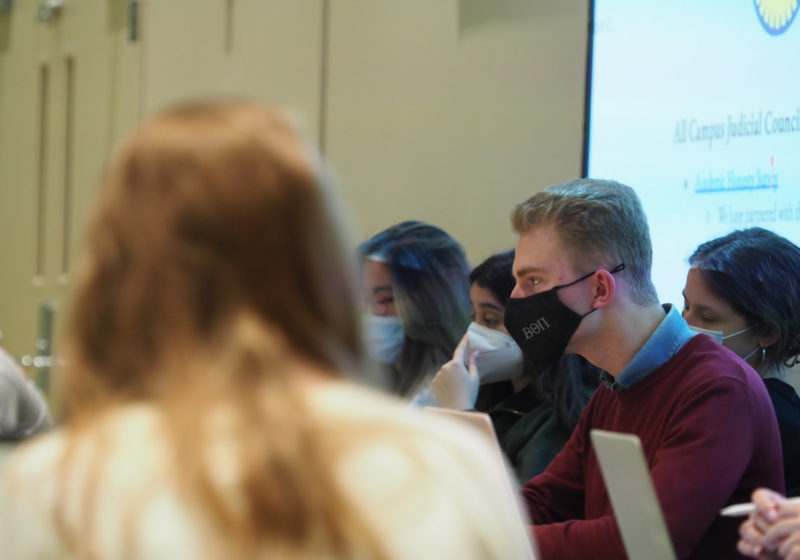Two months ago, senior Brendon Tran filed a Bias-Related Incident Report after his professor denied him exemptions for Lunar New Year celebrations. At its March 28 meeting, the SA Senate formally passed its resolution concerning cultural holiday accommodations.
The Resolution to Expand Academic Policies and Recognize a Variety of Cultural Holidays, authored by junior Senator Boris Sorokin and co-sponsored by junior Senator Falisha Hola and sophomore Minority Student Affairs Liaison Adrija Bhattacharjee, has two components. One makes a direct appeal to faculty and the administration, and the other establishes SA’s course of action to develop a report on students’ cultural holiday demands.
The former urges the administration to maintain a “standardized solidarity” with students requesting cultural holiday accommodations, and then asks the faculty senate and Provost to ensure that professors address cultural holiday accommodation requests with a “presumption of respect.”
The second part charges either the SA Campus Life Committee or “any other committee the functions of which will be to advocate for diversity, equity, and inclusion” with determining potential cultural holidays by polling students and benchmarking with other universities. The committee will then “decide which holidays are the most popular by a simple majority vote” and then will determine by some unspecified process which of those holidays can be granted an excused absence and which cannot. They will submit their report to the Senate by the end of the next academic year.
The ambiguity around which committee will be conducting this process is there to accommodate pending legislation that may create a committee for diversity, equity and inclusion concerns. Instead of the Campus Life Committee being tasked with those responsibilities, this new committee would unify certain duties within the current jurisdictions of the Minority Students’ Affairs Liaison, the Equity and Inclusion Climate Board, and the Campus Life Committee. The new committee would conduct the process if that legislation passes, but the Campus Life Committee will have control if it fails.
Ultimately, final decisions will be up to administration and faculty discretion, but the legislation defines the student government’s position and carves out a potential role for SA in the process.
“Up until now, students were wondering, ‘is there any progress?’” Sorokin said when introducing the resolution. “We all remember the scandal that happened in the beginning of this year, but since then we were working on this resolution and nothing was really made in writing. […] So, the most immediate effect, which will pretty much start the very minute once this resolution is passed […] is that the University will finally get the response from the student government about what has been done in the last two months to address this huge scandal that we had back in February.”
The legislation passed with 11 yeses and five abstentions due to absences, with junior Senator Gregor Cvetojevic voting yes virtually.







